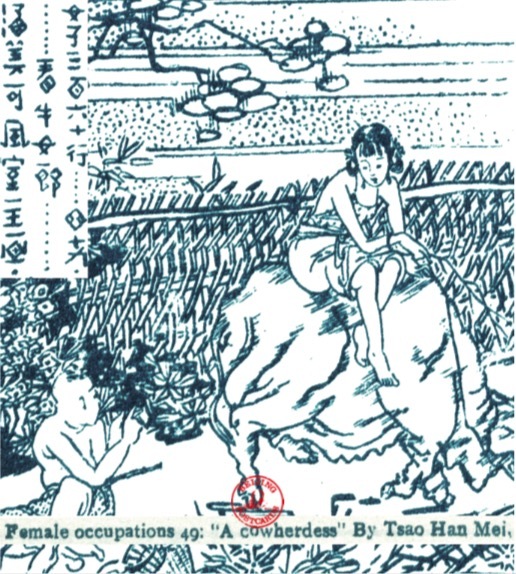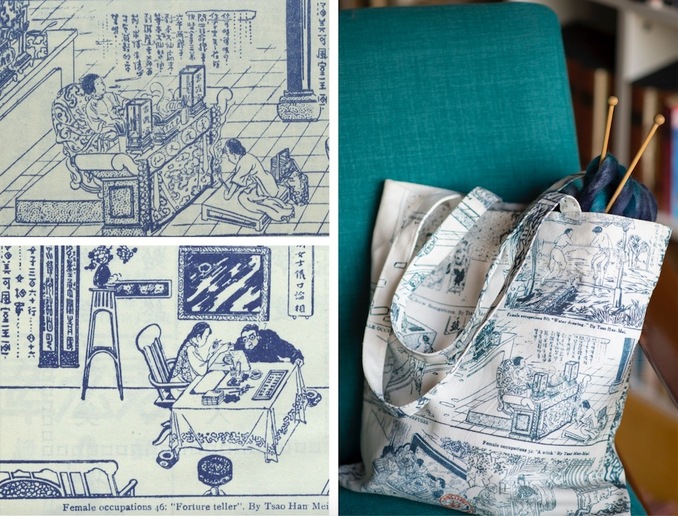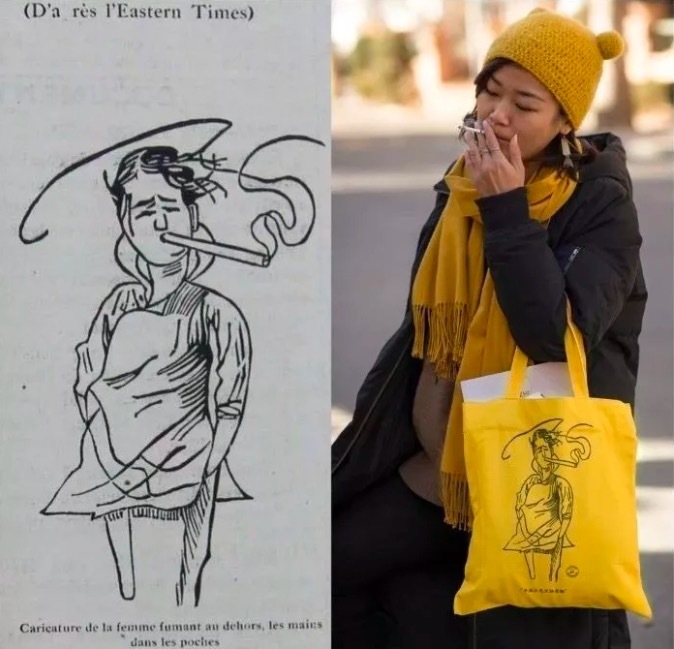
Republican Ladies and the Women of Dashilar
Saturday, October 26, 2019 Beijing No. 97 Yangmeizhu Byway, Xicheng District (杨梅竹斜街97号)
Price: ¥300
Saturday, October 26, 2019
Scan and Share

Beijing Postcards
Beijing Postcards
Detail
008613011078680
info@bjpostcards.com
Views: 828

When the 6-year-old emperor Puyi abdicated in 1912, change was upon Beijing. Suddenly, the old patriarchal structures of society were no longer kept in place. At the top of society, Republican-era ladies would enjoy freedom and opportunity like never before. Newspapers, cigarette packages and movies inspired a whole new idea of what it meant to be a woman.

During the Qing Dynasty, women were not allowed to have conventional jobs. The guilds of traditional trades kept women out. This prompted the newspaper The Peiyang Pictorial News to run a series of drawings entitled “The 360 Female Trades” as a sarcastic comment on the state of affairs. The paper mockingly included female “trades” such as bizarre professions like professional criers, prostitutes, opium pipe holders, and many more.
At the bottom of society, however, it was not curiosity that drove women out of the courtyards. It was poverty, and to the astonishment of Republican-era bystanders, women could now be seen doing “men’s work”, laboriously pulling rickshaws in the dusty streets of the capital.

Beijing Postcards found these pictures while conducting archival research, and we used some of the visuals in our new line of tote bags.
Some would say that it was about time that change caught up with the old capital. Other places in China had long before embraced the ideas of modern society. In Shanghai, female intellectuals, suffragettes, actresses and others were already leading the charge in actively moving away from the traditional passive subordinate role of women and creating entirely new notions in the process.

Our poster girl: Caricature of modern Chinese women: “a woman smoking outside with her hands in the pocket” - La Politique de Pekin 1914
These new ideas began to shine through the cracks in the structure of the old society. Even though Beijing had done everything to resist the change, the foundation of traditional Chinese society was crumbling and the whole house was bound to fall.

Caricature of women in support of women rights – Peiyang Pictorial News 1928
This new Walk-and-Talk will take place in the old Beijing neighborhood of Dashilar - a place that traditionally was the “melting pot” of Beijing society. Dashilar was at the center of development as new modern storefronts, newspaper houses, brothels and movie theaters sprung up and became important vehicles of change. The Walk-and-Talk will end with an exhibition of Beijing Postcards archival research on this topic.
 Show Detail
Show Detail
 Hide Detail
Hide Detail
Beijing Postcards is a company dedicated to Beijing history. Utilizing own historical research and a huge collection of historical photographs, maps and prints. Beijing Postcards goal is to make people relate to the city they live in.
 Powered by Yoopay
Powered by Yoopay
www.yoopay.cn
400.1022.500